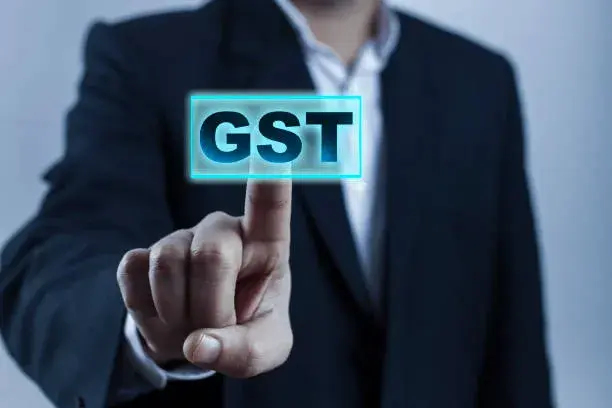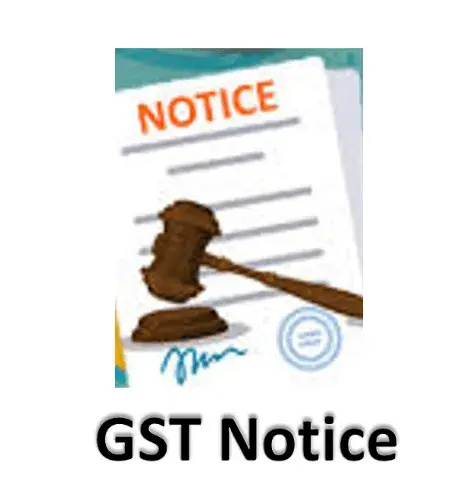Understanding GST Notices and How to Stay Safe from them
The key component of India's tax system, the Goods and Services Tax (GST), has an effect on companies in a number of industries. But for any business owner, getting a GST notification may be a hassle.
This blog will explain what a GST notice is, why you could receive one, and how to safeguard your company from any problems with GST compliance and EaseMyGST's involvement in notice handling.
You can handle the GST landscape with confidence if you use EaseMyGST and keep yourself updated. Recall that receiving a GST notice does not have to end in panic. You can manage it well and make sure that your company's GST compliance goes smoothly if you have the appropriate information and assistance.
What is a GST Notice?
A GST notice is an official letter sent by the GST department to a taxpayer informing them of any
➼ Inconsistencies,
➼ Non-compliance, or
➼ The requirement for more information
Consider a GST notice as the tax authority giving you a polite reminder. It's their method of alerting you to possible problems with your GST compliance.
These problems could be anything from suspect actions in your filings to missing information in your return.
Typical GST notification formats are as follows:
Show Cause Notice (SCN): Issued when it seems that GST regulations have been broken. For example, a SCN requesting an explanation of the mismatch will be sent to a company suspected of underreporting sales in order to avoid paying taxes.
Getting a SCN does not suggest serious issues. It is an opportunity to make clarifications and make sure your GST compliance is up to date. You can handle the problem well if you react quickly and effectively.
Scrutiny Notice: When there are inconsistencies or mismatches in the submitted returns, a scrutiny notice is issued. A scrutiny notice will be sent, for example, if the sales recorded in GSTR-1 differ from the summary return GSTR-3B.
You can prevent more issues by responding to a Scrutiny Notice in a timely and precise manner. To reduce the likelihood of receiving one in the first place, keep accurate records and double-check your GST returns before submitting them.
Audit Notice: When the government intends to audit your GST records, an audit notice is sent out. This could occur if your results consistently show disparities or if they are chosen at random.
A collaborative attitude and adequate preparation will help you get through a GST audit with ease. You may reduce your chances of ever obtaining an audit notification by maintaining reliable records and making sure your GST filings are correct.
Demand Notice:
Served to collect overdue
1. Taxes
2. Fines
3. Interest
A demand letter outlining the amount due will be delivered to a firm that has failed to pay the right amount of GST.
Using a demand notice can help you address the problem before it becomes worse. You may get back on track with your GST compliance by responding fast and making the necessary payments.
Why Might You Receive a GST Notice?
Several reasons can trigger a GST notice, such as:
Discrepancies in Returns: Differences between GSTR-3B (summary return) and GSTR-1 (outward supplies). For instance, there may be a notice if your GSTR-1 shows sales of INR 10 lakh but your GSTR-3B only shows INR 8 lakh.
You can reduce the likelihood that you will be notified about inconsistencies in your GST returns by maintaining an ordered file system and verifying your submissions twice.
Delayed Filing: Notices may be issued out for late GST return submissions. This means that you can get a notification if you fail to file GSTR-3B by the deadline of the 20th of the following month.
The inconvenience and expense of getting notifications for late submissions can be avoided by
1. Maintaining organisation
2. Creating reminders
3. Filing your GST returns on time
Non-Payment or Short Payment: Failing to pay the proper tax payment amount. A notice will be sent out in the case that your GST liability is INR 5 lakh but you only pay INR 4 lakh.
A notification of non-payment or short payment provides an opportunity to make things right. You may get back on track with your GST compliance by responding decisively and making the necessary payments.
ITC (Input Tax Credit) Issues: claiming too much or ineligible ITC. For example, you will receive a notice if you attempt to claim Input Tax Credit (ITC) on inputs that are prohibited by GST law.
You can guarantee a seamless GST filing process by being careful about the input tax credits you claim and maintaining accurate documentation.
Non-Compliance with E-Doc Requirements: Problems with creating or using electronic invoices or electronic way bills. You can receive a notification if you transport goods without producing an e-way bill when necessary.
You can reduce the likelihood of getting alerts for E-Doc compliance issues by being aware of the requirements for e-documents and by using the right resources.
How to Be Safe from Receiving a GST Notice
You may save the effort and stress of handling a GST notification by taking proactive steps. The following actions will guarantee compliance and lower the possibility of getting a notice:
1. Regular Internal Audits:
To ensure that the GST requirements are being followed, conduct routine internal audits. This can assist in locating problems and fixing them before the GST authorities become involved.
Internal audits are a long-term investment in your company. In the long term, you can save time, money, and frustration by proactively verifying your GST compliance.
2. Regular Reconciliation:
Reconcile your buy and sales data on a regular basis with the submitted returns. You may receive a scrutiny notice if there are differences between your books and returns. There are tools and software that can help automate this process of reconciliation.
By routinely balancing your GST data, you may guarantee seamless compliance and reduce the possibility of receiving scrutiny notices. Keep in mind that a small amount of work now might save you a great deal of headaches later.
3. Timely and Accurate Filing of Returns:
Make sure that every GST return is timely and accurately filed. This covers annual returns (GSTR-9) as well as GSTR-1 and GSTR-3B. Reliable accounting software helps automate and simplify the filing process, cutting down on mistakes and hold-ups.
As an example, a company that sells electronics keeps an automated accounting system that updates sales information instantly. This lowers the possibility of getting a notice for inconsistencies by guaranteeing that GSTR-1 and GSTR-3B filings are timely and precise.
4. Proper Maintenance of Records:
Ensure that all transactions, invoices, and other pertinent papers are kept up to date. This aids in efficient operations as well as in the event that the GST department conducts audits or inquiries.
Maintaining accurate records is an investment in the tranquillity of your company. You may guarantee effective operations, seamless GST compliance, and save needless stress during inquiries or audits by maintaining organisation.
5. Accurate ITC Requests:
Make sure all the supporting documentation is in order and only claim the proper Input Tax Credit. Receiving GST notices is frequently the result of incorrect ITC applications.
You may reduce the likelihood of obtaining warnings for improper ITC claims by being careful about the ITCs you claim, maintaining accurate records, and making sure you have the necessary documents.
6. Stay Updated with GST Laws:
The laws governing GST are subject to regular revision. Keeping updated with the most recent notifications and revisions can assist guarantee compliance. It can be helpful to subscribe to GST newsletters or get advice from a GST specialist.
Keeping up with GST is a continuous process. You can make sure your company remains compliant and steers clear of any needless issues by subscribing to reputable sources and getting expert assistance when required.
How EaseMyGST Can Help
A comprehensive platform for GST compliance, EaseMyGST helps businesses reduce complexity and improve efficiency in GST-related operations. This is how EaseMyGST will assist you in maintaining compliance and avoiding GST notices:
1. Automated Return Filing:
EaseMyGST ensures accurate and timely submission of GST returns by automating the filing process. By integrating with your accounting systems, the platform gathers the required data and lowers the possibility of errors and late filings.
For companies of all sizes, especially those handling a high volume of transactions, EaseMyGST can be a very useful tool.
You may simplify your tax compliance procedure and concentrate on what really matters—growing your business—by automating the filing of your GST returns.
2. Real-Time Reconciliation:
By comparing your sales and purchase data with GST returns, the platform provides real-time reconciliation services. This facilitates the quick identification and correction of imbalances.
Your GST data can always be precise and consistent if you use EaseMyGST's real-time reconciliation feature. By doing this, you decrease the possibility of tax department penalties and save time and frustration.
3. Document Management:
You can organize and manage all of your GST-related paperwork in one location with the aid of EaseMyGST. Using a systematic strategy guarantees that you can produce the required paperwork for audits or inquiries in a timely manner.
The document management feature of EaseMyGST can help you turn your disorganized system of GST paperwork into a well-managed one. By doing this, you'll save time, feel less stressed, and be ready for any GST-related questions at all times.
4. GST Law Updates:
You may stay updated on the most recent modifications to GST legislation and regulations by using EaseMyGST. The platform makes sure you stay in compliance with current regulations by offering updates and compliance advice.
Through the use of EaseMyGST's update tools, you can make sure that your company is up to speed with the constantly changing GST landscape. You'll save time, feel less stressed, and be able to concentrate on what really matters—running your business profitably.
5. ITC Management:
By confirming supplier compliance and making sure all required paperwork is in order, the platform assists you in tracking and claiming the appropriate Input Tax Credit.
You can make sure you're claiming all the ITC you're entitled to while conforming to GST requirements by using EaseMyGST's ITC management capabilities. You minimize your tax benefits, save money, and feel less stressed as a result of this.
6. Internal Audits:
EaseMyGST makes internal audits easier by giving you the tools to examine and evaluate your GST information. Frequent audits can spot possible compliance problems before they become more serious.
You may proactively find and fix any gaps in your GST compliance by utilizing EaseMyGST's internal audit tools. This can guarantee that your company stays out of trouble with the tax authorities, save you money in penalties, and decrease your worry.
Dealing with a GST Notice:
If you do receive a GST notice, here’s how to handle it effectively:
Read the Notice Carefully: Recognize the purpose and specifics of the notification. Every notice has a distinct objective and calls for a unique kind of reaction.
Consult a Professional: Seek assistance from a tax expert or GST consultant to comprehend the ramifications and draft an appropriate response.
Gather Documents: Gather all the information and proof you need to back up your answer.
Respond Timely: Make careful to reply within the time range specified in the notification.
Follow Up: Keep a record of the notification and any further correspondence you receive from the GST department.
Conclusion
Following the above recommended measures will help ensure that you are prepared for any GST notice ahead of time. Recall that successfully managing the complexity of GST requires being proactive and knowledgeable.
Consider that being proactive is essential for efficient GST management. You may reduce the possibility of getting a GST notice and make sure your company remains compliant by following these procedures.







